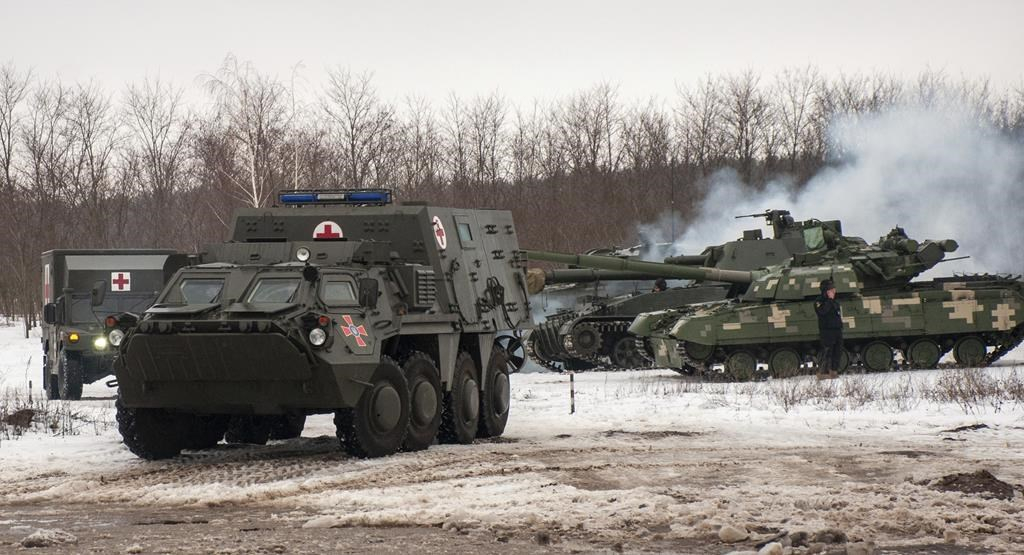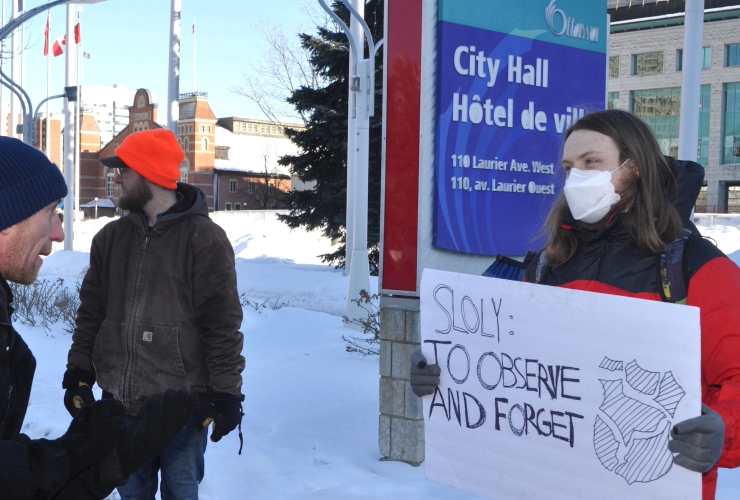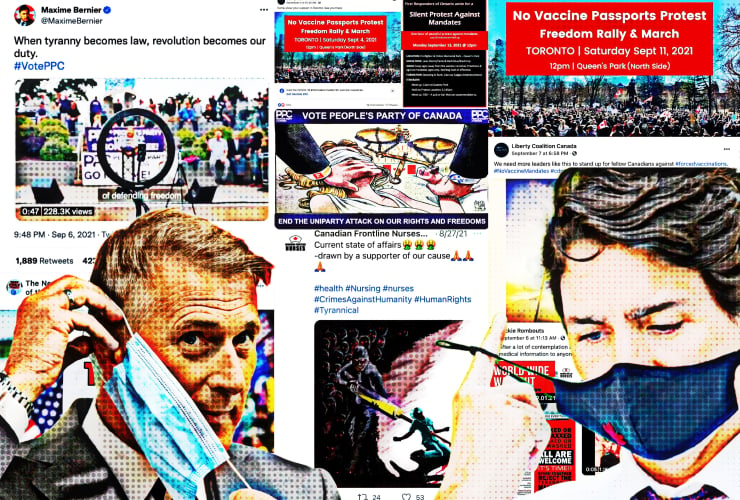Britain's envoy to Canada says the two countries are co-operating on a tough new set of sanctions against Russia if it invades Ukraine.
Susannah Goshko, the British High Commissioner to Canada, said her country's passage of new sanctions legislation on Thursday will strengthen its ability to target individuals close to President Vladimir Putin if Russian forces put one toe over the Ukraine border.
"We will be ready to go with sanctions," Goshko said in an interview Thursday. "This new, enhanced sanctions regime will allow us to put in place really hard-hitting sanctions at that moment. And we've been working really closely with a range of allies on this, including Canada."
Goshko spoke as British Foreign Secretary Liz Truss held talks in Moscow with her Russian counterpart Sergey Lavrov and Prime Minister Boris Johnson flew to Brussels and Poland.
In London on Thursday, the British parliament enacted a new sanctions law that targets Russian political figures as well as the powerful oligarchs that are backing Putin.
The British government was billing the new law as its toughest sanctions regime yet because it targets businesses and individuals in key sectors such as information and communication technology, defence, extractives and financial services.
"This gives us an ability to go after people, businesses or entities who are of strategic importance to the Kremlin," said Goshko. "They'll be designed to really hit the Kremlin where it hurts and to not inflict damage on the Russian people. We have no beef with the Russian people."
Russia's deployment of 100,000 troops on Ukraine's borders is stoking fears of invasion, but Russia denies it has any plans to do so.
Goshko said Britain will be sharing details of its meetings with Canadian officials after receiving a full update on the recent travels of Foreign Affairs Minister Mélanie Joly and Defence Minister Anita Anand to Ukraine and other European capitals.
The British diplomatic forays follow French President Emmanuel Macron's attempt to defuse the tensions on the Russia-Ukraine border with his own meeting with Putin in Moscow on Monday. U.S. Secretary of State Antony Blinken has also held his own talks with Lavrov in Geneva.
Last month, the German and European Union ambassadors to Canada told The Canadian Press that their governments were working closely with Ottawa to co-ordinate the imposition of sanctions that would target the Russian economy and individuals.
Unlike Canada, which has decided not to supply the Ukraine military with lethal weapons, Britain has also supplied light armour anti-tank weapons to the Kyiv government.
Goshko stressed it wasn't her place to tell Canada whether it should follow suit with enhanced military aid.
"Canada has been involved in training Ukrainian soldiers as well for some time now. So, there's a lot of things where we're working together, and of course there's Canada's enduring commitment to NATO through Operation Reassurance, so there's an awful lot there that Canada is doing."
Canada leads the NATO battlegroup in Latvia, where is has about 600 troops leading and has 200 military trainers in Ukraine, which is not a NATO member.
Canada recently announced a three-year extension of its training mission in Ukraine and committed another 60 trainers as part of a military aid package that includes night-vision goggles and armoured vests.
Canada and NATO partners have yet to respond to calls from another eastern European ally, Latvia, for military reinforcements.
Earlier this week, Ottawa warned against any travel to Ukraine and urged all Canadians in the country to leave.
This report by The Canadian Press was first published Feb. 10, 2022.
Exactly why is NATO still in
Exactly why is NATO still in existence years after the dissolution of the Soviet Union? NATO was, after all, founded as a means of countering the supposed threat to Western Europe from the Soviet Union. Why, after promises made to Gorbachev by the US president, when the Soviet Union was imploding, that there would be no further eastward expansion of NATO towards Russia's borders, has NATO continued to do just that? Who is the aggressor here? How would Canadians feel if Russian forces had an agreement with St Pierre and Miquelon and posted troops within their borders and carried out military exercises there? We already know how the United States of Aggression would react to Russian involvement in Caribbean or Central American countries - remember the Cuban missile crisis? Russia was invaded twice in the 20th century by European countries (Germany) - well, three times if you count the invasion of Russian territories by western nations that were sticking their noses in Russia's affairs during the revolution and fighting in support of the white Russians (the former oligarchs and aristocrats) who were fighting against the Bolsheviks. The level of hypocrisy demonstrated by western countries and mainstream media (I'm disappointed to see this type of coverage on the National Observer) is astounding.




Comments